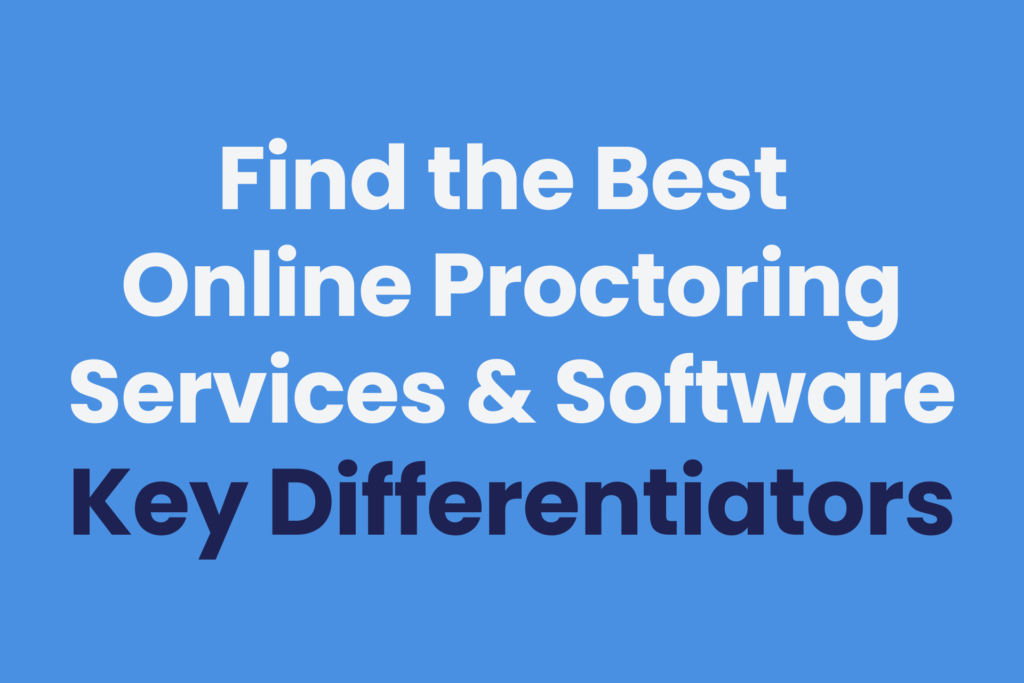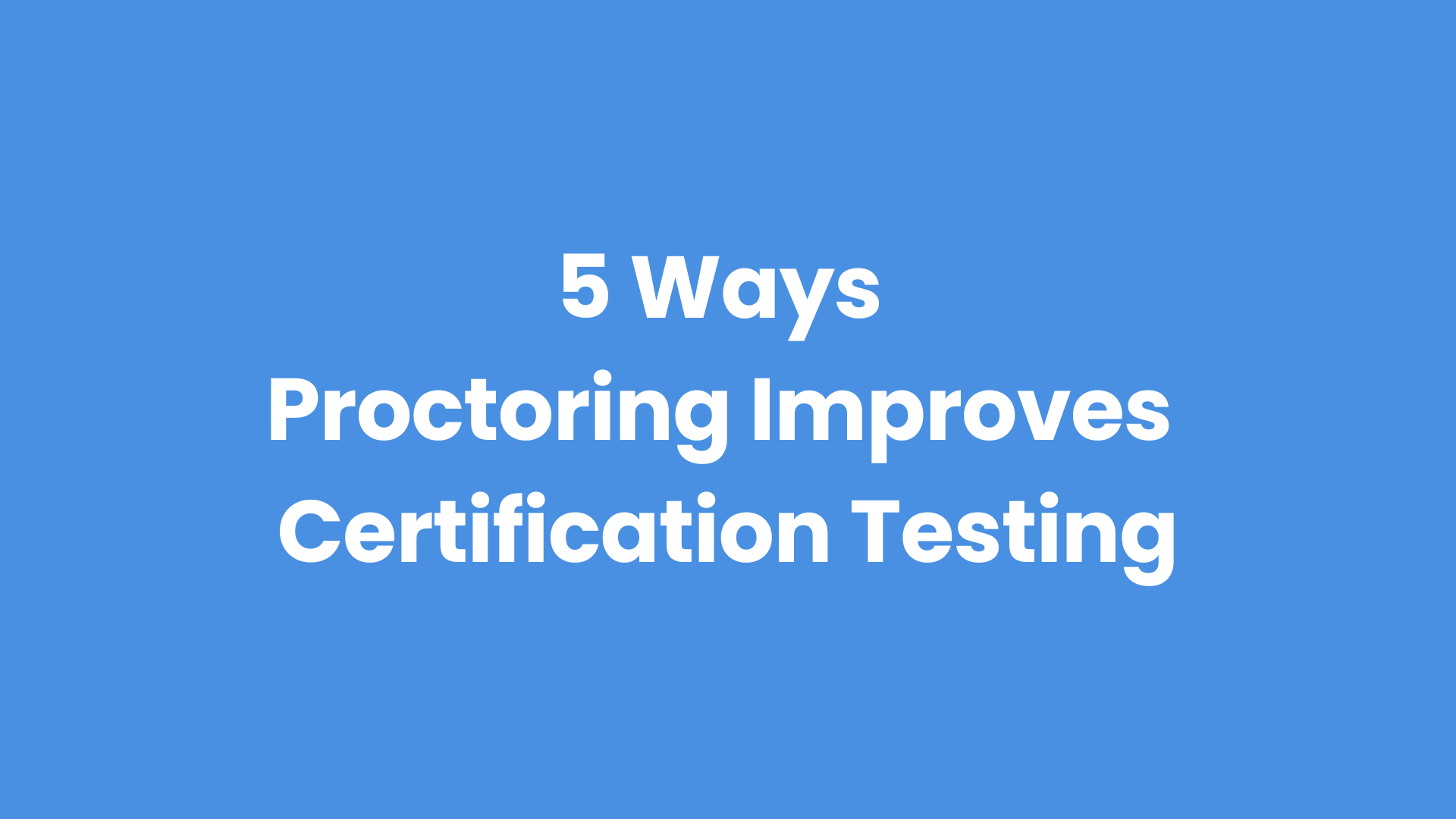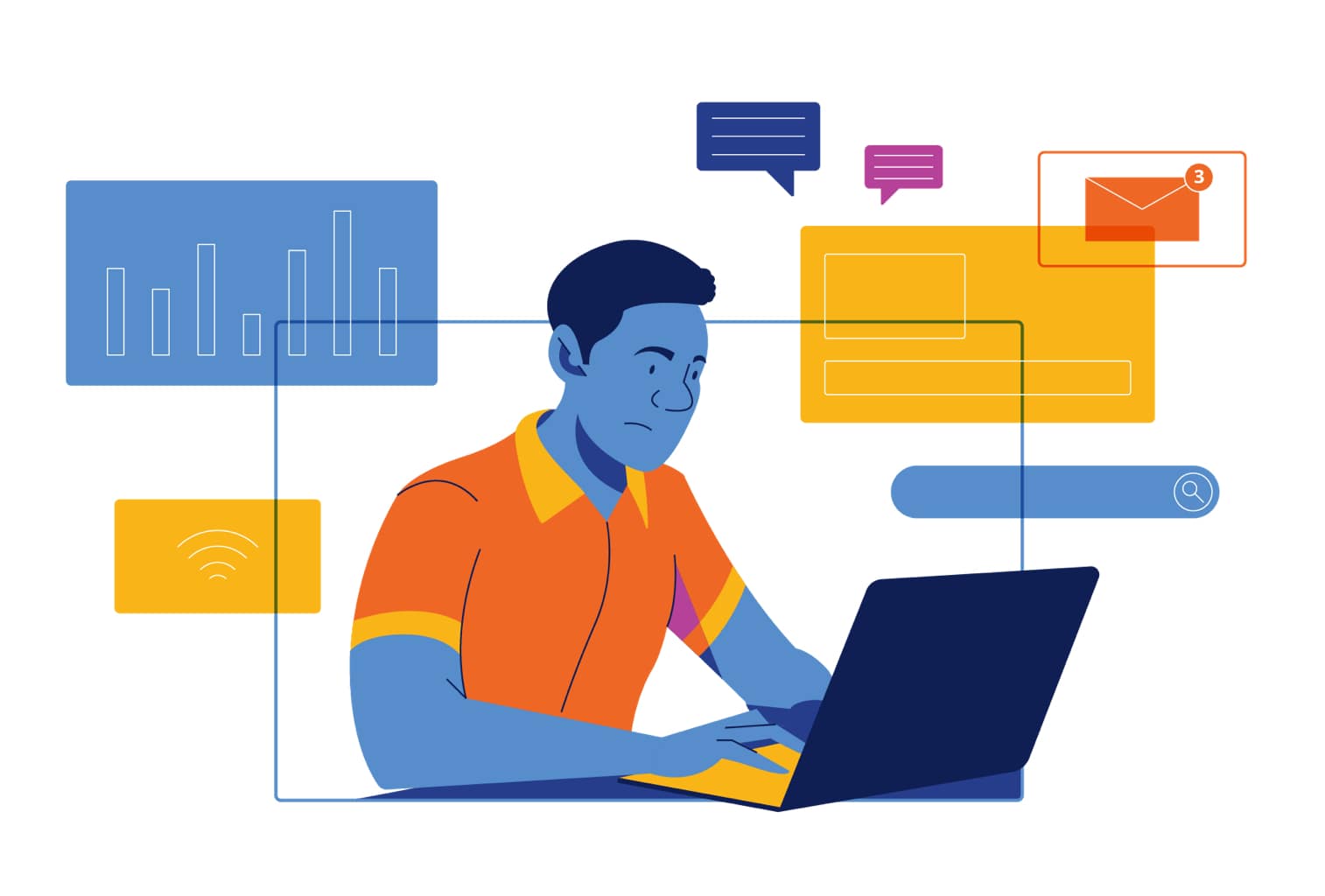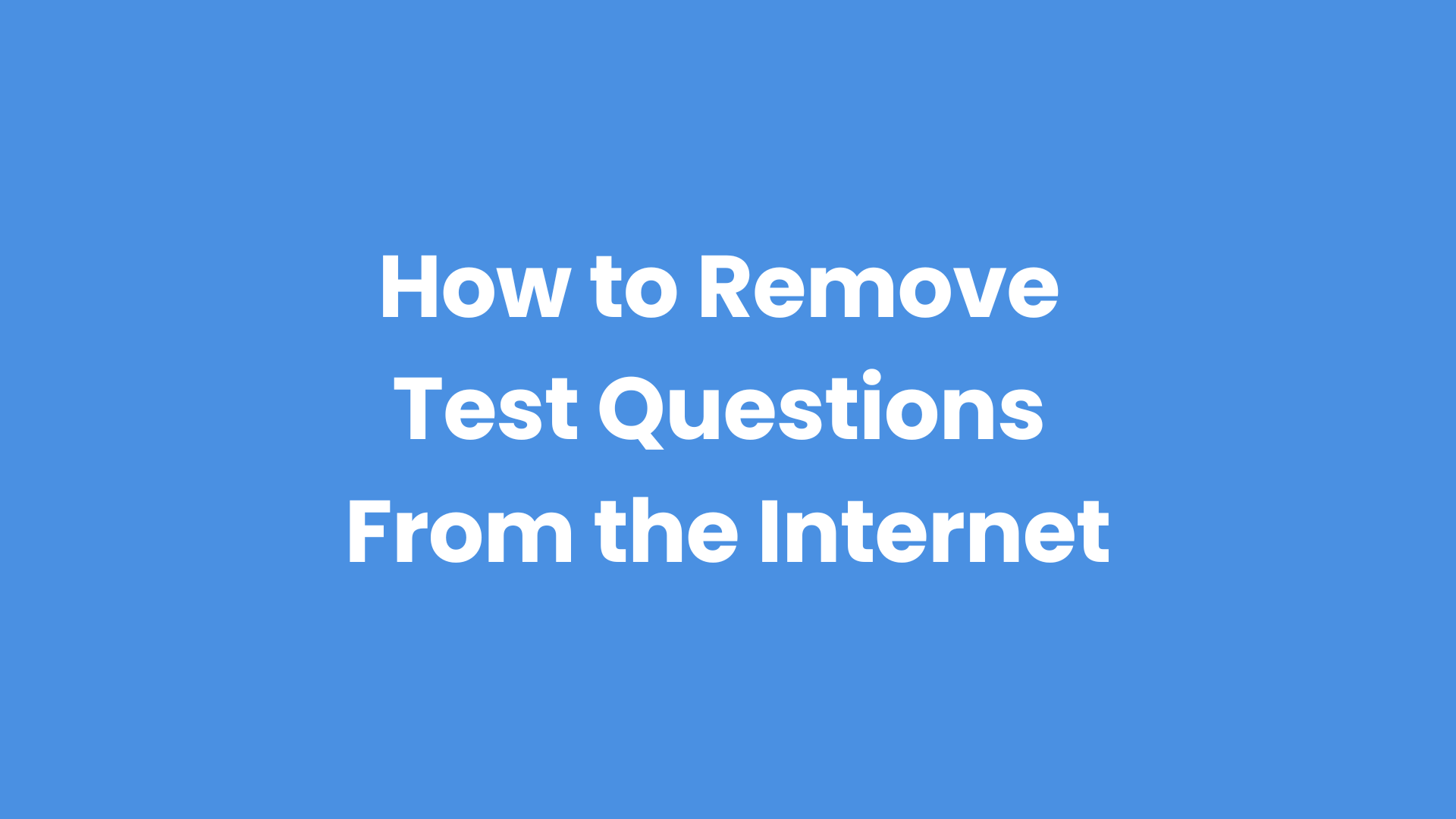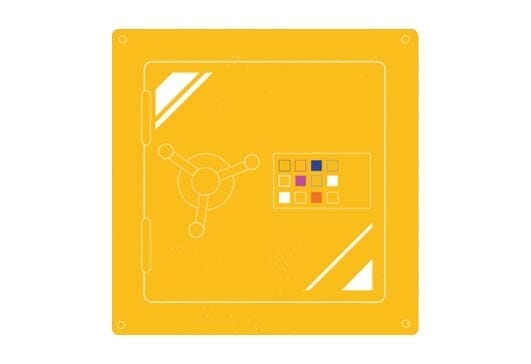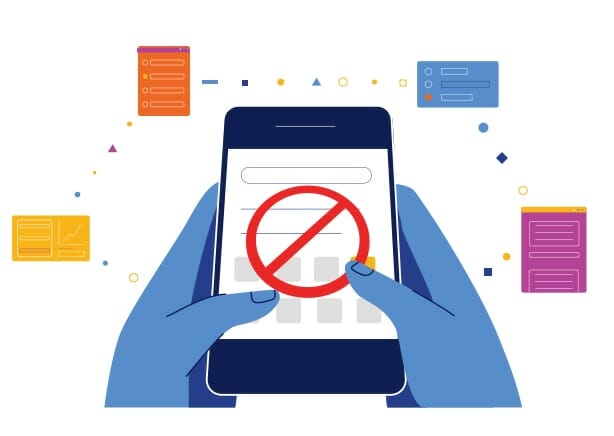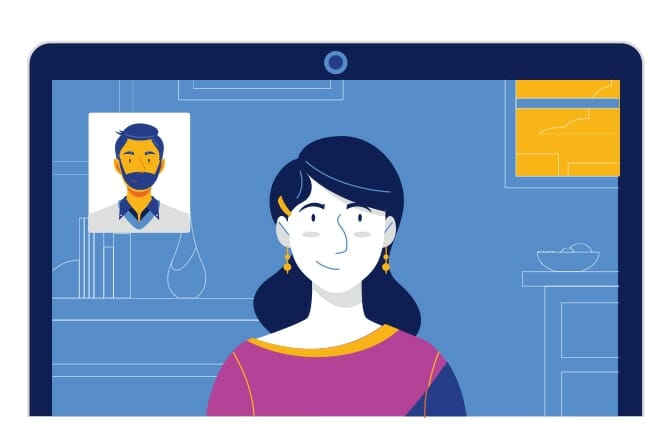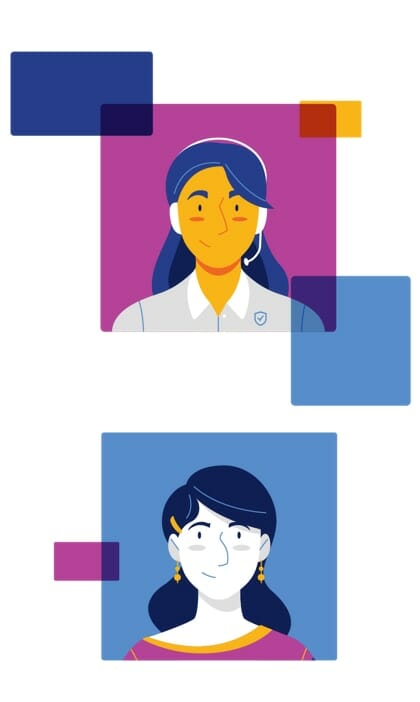The sheer number of online proctoring services and software—some similar, some different—is enough to make your head spin.
But there’s good news: this article covers everything you need to know about proctoring online exams, from what it is and how it works to the different types of software and tools and how they impact the exam experience.
Understanding the basics of online proctoring
What is online proctoring?
Online proctoring is a remote exam supervision method using software, live proctors, or both to maintain exam security and academic integrity. By monitoring desktops, audio, and video, online proctored exams deter and prevent cheating while offering convenient, flexible, and accessible assessments.What is a proctored exam?
A proctored exam is a supervised virtual assessment that starts with verifying identity and scanning the room for unauthorized items like cell phones and notes. Remote proctoring software monitors video, locks the browser, and tracks various activities to prevent cheating. Online proctored exams uphold academic integrity, protect credibility, and promote equity and fairness in assessments.
What is an online test proctor and what do they do?
An online test proctor protects academic integrity by verifying test taker identity, monitoring behavior, and managing processes like enforcing rules and providing accommodations to keep the test environment fair and secure. Online proctors with appropriate training can also support test takers during stressful moments.Online proctoring services and software compared
Different types of online proctoring options
- Record and review captures the exam session’s audio and video, which the institution’s staff or the proctoring service reviews after the exam is completed.
- Automated proctoring uses AI to monitor exams to detect and flag academic dishonesty.
- Secure test browsers are a type of automated proctoring software that restricts access to other sites and applications and blocks keyboard shortcuts like copy and paste.
- Live proctoring relies on human proctors overseeing multiple exams in real time and intervening if potential misconduct is detected.
- Hybrid proctoring combines AI and human proctors; the AI monitors behavior, while human proctors review flagged incidents and may also monitor behavior directly.
Same type of exam proctoring… multiple approaches… different experiences?
Even if you’re using the same type of proctoring, the experience can be completely different depending on each company’s approach.
Example: all three remote proctoring companies offer a hybrid solution, but each one approaches it differently, which changes the test experience.
- Company A: a live remote proctor watches a dozen or so test takers simultaneously—the proctor is typically visible in a box on the test takers’ screens—while AI monitors behavior.
- Company B: AI monitors and pauses exams when potential misconduct occurs—even for innocent actions like sneezing—and a live proctor intervenes.
- Company C: AI monitors exams, but instead of pausing the exam for potential misconduct, it alerts the proctor to review the behavior, and they’ll only intervene if necessary.
Think of it like this: you found three restaurants that will cook you a filet mignon.
One restaurant microwaves it until it’s like a hockey puck, another boils it in water (gross), while the other grills it to perfection.
Technically, they all check the box because they cooked a filet mignon for you.
Can you imagine how much different they taste?
This shows how different the same type of proctoring can be, and the same goes for individual tools, regardless of how specific their purpose is.
For example, some companies offer “cell phone detection,” but it actually just relies on a remote proctor seeing a phone while monitoring multiple test takers at once. Other companies use AI that can detect phones in the test area and identify when test takers try to use them to search for test questions.
So, if you’re comparing proctoring technologies, don’t just rely on feature names—dig deeper into how they work to make sure they meet your needs.
Online proctoring software tools and features
Standard proctoring tools
- Video proctoring uses the webcam to scan the room and monitor and record behavior during a remote proctored exam.
- Browser lockdown software secures test browsers by preventing access to unauthorized applications and sites and restricting keyboard shortcuts like copying and pasting.
- Sound detection records and monitors all audio to detect cheating.
- ID verification confirms identity before the proctored assessment starts.
Advanced proctoring tools
- Cell phone detection uses AI to catch a range of phone activities, like looking up answers and even when a phone or another device is in the testing area.
- Exam content protection automatically searches the internet for leaked exam questions and allows instructors to submit takedown requests with one click.
- AI blocking uses a combination of proctoring features to block students from using generative AI like ChatGPT and Google Gemini, as well as AI browser extensions.
- Smart Voice Detection triggers when phrases like 'Alexa' or 'OK Google' that may indicate cheating, records the audio, alerts a remote proctor, and provides a transcript.
- Live Pop-in combines live proctors and AI proctoring software; the AI monitors test takers’ behavior and alerts a remote live proctor if it detects potential academic dishonesty. Then, the proctor reviews the situation to determine whether to intervene or not. This way, the test taker won’t be interrupted unless it’s necessary.
Get more details on features and functionality
Whether the tools are standard or advanced, the proctoring solution should make it easy to pick and choose which features you want to use, turn off, or customize based on your exam needs. For example, instead of blocking all websites during a proctored test, you can allow access to specific sites, such as research studies, while still restricting all others.
This offers an extra layer of customization and oversight in the entire assessment process while still keeping up with the challenges of preventing cheating in online exams.
What test formats can be remotely proctored?
- Traditional formats (multiple choice, true or false, fill-in-the-blank)
- Paper-based formats (handwritten essays and math problems)
- Authentic and performance-based assessments (using software, presentations, demonstrations, portfolios)
- Open-book/notes (access to digital or physical textbooks, notes, and resources)
- In-person (physical testing centers, computer labs)
Use cases and benefits of proctored exams
Who uses online proctoring?
Online proctoring is used in higher education by universities and colleges and in professional education for licensure and certification exams, corporate training, and other continuing education programs.
Higher education
Schools of all sizes use online proctoring to administer remote exams with the same rigor as in-person. This makes it easier to take and deliver exams in any format while maintaining academic integrity, even when students aren’t on campus.
Professional education & corporate
Organizations use online proctoring to prevent cheating and grow their certification programs and other exams for corporate training and continuing education by offering participants the convenience and flexibility they need, reducing travel costs and time constraints.
What are the benefits the online proctoring?
Most assume proctored exams are just to catch cheating, but they actually create tangible benefits that improve the entire testing experience for all users, such as:- Student benefits: taking proctored exams online offers students more convenience, flexibility, and access than in-person tests while reducing test anxiety and validating the credibility of online programs.
- Instructor benefits: virtual proctoring prevents cheating, frees up class time by eliminating in-class tests, protects test content from being shared on the internet, and helps instructors understand students’ behavior and test-taking strategies.
- Institutional benefits: remote proctoring protects reputation and credibility, reduces overhead costs, and helps meet the identity and attendance verification requirements for accreditation and federal funding.
Proctoring costs and LMS integrations
How much does online proctoring cost?
The cost of online proctoring varies significantly based on the type of software and services used, and especially their pricing model. If the proctoring service charges by the hour, you’re at the mercy of variable costs, like exams running longer than expected, which can put a serious dent in your budget.
What if the proctoring company charges by the hour, and final exams take longer than expected?
Now, you’re hit with a hefty bill for those extra hours of test proctoring that weren’t in your budget… Whether it costs $1,000 or $10,000, it’s too much.
Instead of playing a guessing game to cover variable costs, find an remote proctoring company that offers a flat rate cost per exam or per test taker—your bottom line will thank you.


